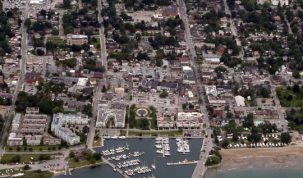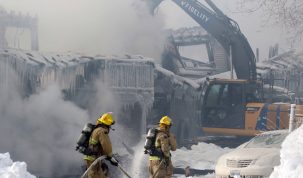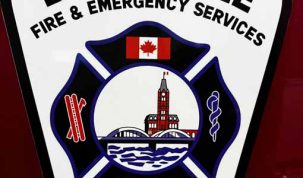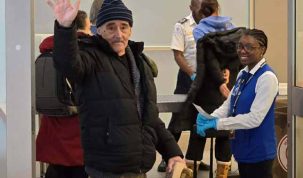To help protect area residents, the local Health Unit is taking stronger steps to help slow the spread of COVID-19 in the community.
The Haliburton, Kawartha, Pine Ridge District Health Unit today (April 14) issued a Class Section 22 Order that will require anyone who has been diagnosed with COVID-19, is considered a probable case, or has had contact with a confirmed case, to self-isolate in their home for 14 days. If the person fails to self-isolate as required, the Health Unit can ask the court to fine them up to $5,000 a day.
“The Health Unit has heard from many people that there are others who have returned from travel or been confirmed to have COVID-19 and are seen outside of their home, shopping or visiting friends,” says Dr. Lynn Noseworthy, Medical Officer of Health for the HKPR District Health Unit. “This Order allows the Health Unit to ensure those people are isolating and not spreading the virus to others in the community.”
The Health Protection and Promotion Act authorizes the Medical Officer of Health to make a Class Order to address the risks presented by the potential spread of COVID-19 to residents of the City of Kawartha Lakes and Northumberland and Haliburton Counties. While most people who have or may have COVID-19, as well as their close contacts, have been compliant with instructions from public health authorities to self-isolate, there are individuals who do not take these measures seriously enough. This Class Order is a legal tool to help the Health Unit ensure that everyone who needs to self-isolate, complies.
“We are asking everyone to do their part to help stop the spread of COVID-19 through our communities,” Dr. Noseworthy says. “If we all work together, we can keep each other safe.”
Health Unit staff are continuing to contact area residents who have tested positive for the virus, as well as anyone who has had contact with those individuals. In their discussion, Health Unit staff ensure those affected understand they are required to stay home. Self-isolation means not leaving home at all or having any visitors except as permitted by HKPR District Health Unit (for example, where a health care worker is visiting the home). People in self-isolation should arrange to have groceries and other necessities delivered to them.
If a person with COVID-19 is homeless, or where their home is otherwise unsuitable or unsafe for isolation purposes, they will be accommodated in an isolation facility to be determined.
“It is our hope that everyone understands the importance of self-isolating and we do not need to levy any fines under this Order,” Dr. Noseworthy says.
Anyone who is not ill or required to self-isolate is still being asked to heed the public health messaging of staying home to stay safe. This includes:
· Asking all residents to stay at home, leaving only for essential reasons including groceries, medicines and medical appointments. Daily exercise should be done alone or with one family member, or to exercise a pet.
· Encouraging people over the age of 70 to stay at home, emerging only for essential needs (groceries, medications, or seeking healthcare). If possible, they should rely on family and social supports to minimize interaction with others. This advice also applies to people who have underlying medical conditions or compromised immune systems.
· Asking people who have seasonal cottages to refrain from going to the cottage, as it could put extra strain on the already limited resources of the cottage communities.
· Essential businesses that choose to remain open should work to limit access to their facilities and the number of occupants on their premises. They must also move their operations to delivery and pick-up as much as possible and maximize physical distancing, infection prevention and control practices, and cleaning.
· Essential businesses that choose to remain open should also consider active screening of their employees and staff for signs and symptoms of COVID-19.
If residents who are not symptomatic or not required to self-isolate at home must leave their home, they are reminded to practise physical distancing, avoid crowds and physical contact, and stay a safe distance of two metres from other people.
























